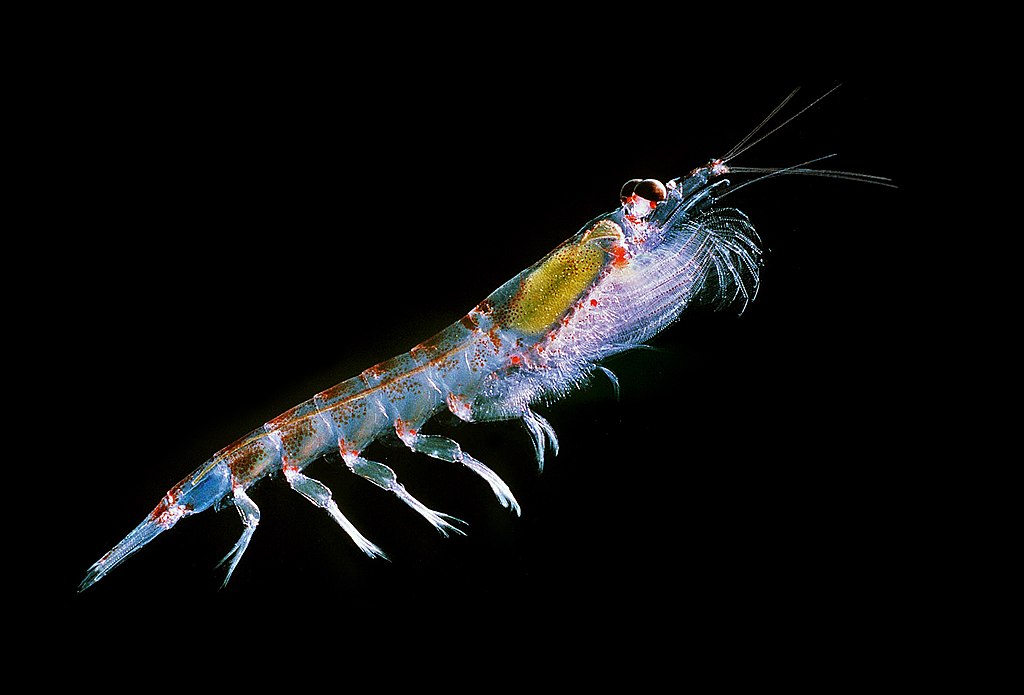Difference between revisions of "Template:Westarctica.wiki:Today's featured article"
Westarctica (talk | contribs) |
Westarctica (talk | contribs) |
||
| (163 intermediate revisions by the same user not shown) | |||
| Line 1: | Line 1: | ||
[[File: | [[File:Antarctic krill.jpg |250px|left]] | ||
'''[[ | '''[[Antarctic krill]]''' is a species of [[krill]] found in the [[Antarctica|Antarctic]] waters of the [[Southern Ocean]]. It is a small, swimming crustacean that lives in large schools, called swarms, sometimes reaching densities of 10,000–30,000 individual animals per cubic meter. It feeds directly on minute phytoplankton, thereby using the primary production energy that the phytoplankton originally derived from the sun in order to sustain their open ocean life cycle. | ||
It grows to a length of 6 cm, weighs up to 2 grams, and can live for up to six years. It is a key species in the Antarctic ecosystem and is, in terms of biomass, probably the most abundant animal species on the planet. In 2019, the Antarctic krill was featured on a [[Stamps of Westarctica|stamp of Westarctica]] to celebrate its role as a vital part of the Antarctic ecosystem. | |||
'''([[Antarctic krill|Full Article...]])''' | |||
'''([[ | |||
Latest revision as of 22:23, 1 January 2026
Antarctic krill is a species of krill found in the Antarctic waters of the Southern Ocean. It is a small, swimming crustacean that lives in large schools, called swarms, sometimes reaching densities of 10,000–30,000 individual animals per cubic meter. It feeds directly on minute phytoplankton, thereby using the primary production energy that the phytoplankton originally derived from the sun in order to sustain their open ocean life cycle.
It grows to a length of 6 cm, weighs up to 2 grams, and can live for up to six years. It is a key species in the Antarctic ecosystem and is, in terms of biomass, probably the most abundant animal species on the planet. In 2019, the Antarctic krill was featured on a stamp of Westarctica to celebrate its role as a vital part of the Antarctic ecosystem.
